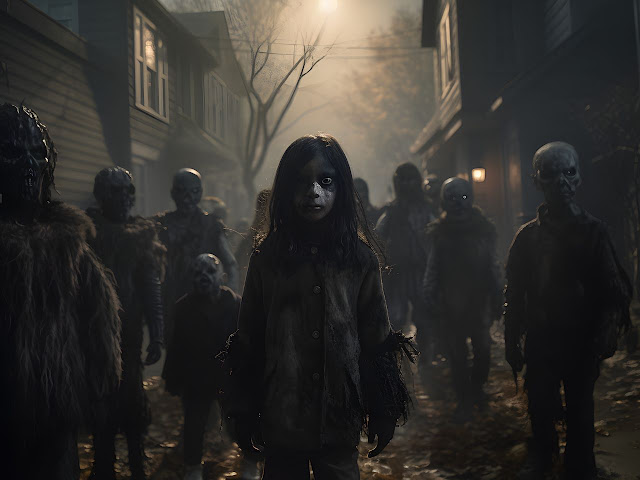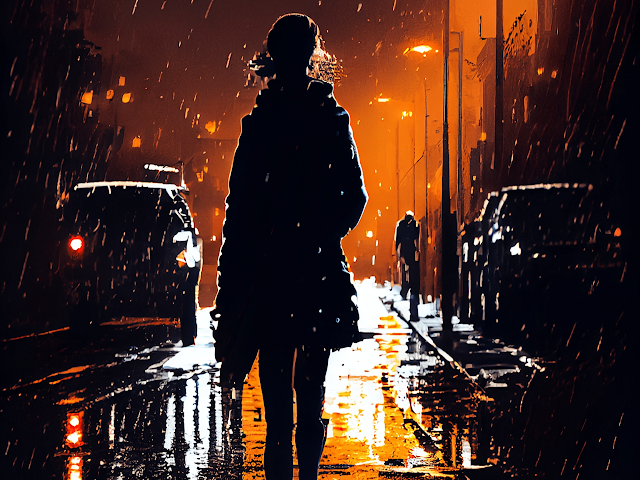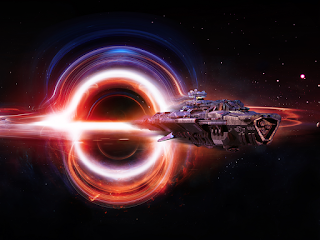Stupefying Stories is a by-product of chemotherapy.
It seems morbid to put it this way, but it’s true. I never planned to become a magazine editor. After 30 years in the publishing industry, as both a writer and an editor, I was really quite fed up with the whole SF/F scene and happy to walk away from it. When Karen and I incorporated Rampant Loon Media LLC, it was with the idea that we were doing so to a.) explore this emerging new world of electronic publishing, b.) by publishing non-fiction, and in particular, cookbooks.
There, that’s a trade secret for you. If you want to tell stories, write fiction. If you want to make money, and write a book that people will treasure for years, return to often, give as gifts to friends, and pass down to their children, write a good cookbook. Say, Gourmet Kosher Vegan Stir-Fry on a Budget. Seriously.
I wasn’t completely out of the genre. I still liked to read the stuff, and still had a lot of professional writer friends. I’d begun a blog, which in time became The Friday Challenge, a sort of ad hoc writer’s group project very much like The Pete Wood Challenge, only bigger, more complicated, and ultimately more unwieldy and nearly impossible to manage.
I didn’t plan to get back into SF/F publishing. When we produced the very first issue of Stupefying Stories, it was mostly as a lark. We expected it to be a one-off, and it was (mostly) filled with past Friday Challenge winners. We thought it would be fun to see if we could duplicate the look and feel of an old-school pulp magazine—and we found that we could, and it was—but it was expensive fun, so we decided not to do that again.
If you’re wondering why we called the thing Stupefying Stories: our origin story is right here, in the cover story, “It Came From The Slushpile,” my frequently anthologized and even optioned for a screenplay short story from the 1980s. The gag, which got cut from the story as finally published, was that our “original” publisher back in the 1940s had started out with a thesaurus and an alphabetized list of superlatives—amazing, astounding, fantastic, incredible, etc., etc.—and worked his way down to “stupefying” before finding a pulp magazine name that was not already taken.
In hindsight, perhaps I should have given the name more thought.
COUNTDOWN SALE THIS WEEK!
E-BOOKS STARTING AT JUST 99¢!

SUNDAY 10/27 ~ THURSDAY 10/31!
TELL YOUR FRIENDS!
This is where chemotherapy enters the story. Literally, between the time we signed off on the printer’s galleys and the time the bindery delivered the finished books, Karen was diagnosed with advanced lobular invasive breast cancer. We put no time or energy into promoting Stupefying Stories: It Came from the Slushpile because we were far too busy dealing with her medical problems. After recovering from the initial surgery, she began daily chemotherapy, and as someone with a four-novel-a-week habit, she quickly found that schlepping around her usual bag filled with print books and magazines was exhausting.
So, purely to save weight and wear and tear on my wife, I bought her a Kindle.
That device was a revelation. Up to that point I’d been thinking about publishing in conventional terms. That first Kindle showed me that it might—just might—be possible to publish genre fiction in a way that made some kind of economic sense.
§
A year later, in October of 2011, Stupefying Stories was reborn, this time as a direct-to-ebook title. Unfortunately, a number of fundamental problems were baked-in right from the start.1. I really should have given that name more thought.
2. No one was truly in charge of the thing. We started out with a sort of editorial collective, composed mostly of Friday Challenge regulars, and no unified vision of what we were trying to do. As a result, we were always going off in six different directions at the same time. (For a while, my title was, “Executive Cat-herder in Chief.”)
3. …and doing so very slowly. We had a terrible time reaching consensus and making decisions.
4. We gave little thought to what the Stupefying Stories brand meant, beyond, “stories that most of us agree we like, right now.”
5. The great thing about working with a staff of volunteers is they begin with lots of energy and enthusiasm. The bad thing is they burn out quickly. The challenge is to keep volunteers engaged, after the point at which the fun turns into work. Having been on the Boards of Directors of several volunteer-staffed 501(c) non-profit corporations, I knew this but didn’t address it, because—
6. In hindsight, it was madness to try to do this while we were playing whack-a-mole with Karen’s cancer.
COUNTDOWN SALE THIS WEEK!
E-BOOKS STARTING AT JUST 99¢!

SUNDAY 10/27 ~ THURSDAY 10/31!
TELL YOUR FRIENDS!
It’s impossible to overstate how tightly Stupefying Stories is entwined with the story of Karen’s cancer journey. Our erratic publishing history is a direct reflection of the ebb and flow of her health. She’d go into remission; we’d become optimistic again and start putting out new books. A new lesion would pop up; we’d have to let the magazine slide while we dealt with that.
We never gave up, because she never gave up. She loved the magazine, because she loved genre fiction and loved to read. (When we first moved in together and merged our libraries, all those decades ago, she had more science fiction books than I did.) At the end, when she was in the ICU and the cancer had robbed her of her ability to read, she had me get her a pile of preschool workbooks, because she was determined to learn to read again.
As the cancer progressed, and slowly took away her life piece by piece, reading and talking about stories and planning new issues had become some of the last things we could still do together. Her fingerprints—as well as her editorial mark-ups and comments scribbled on Post-It notes—were all over the manuscript for Stupefying Stories #25, which is why I had to switch the publication order and release Stupefying Stories #24 first. After she died it took me a long time to be able to look at the manuscript for SS#25 again.§
In the beginning, the Stupefying Stories brand meant, “Stories that most of the people in the Friday Challenge collective agree that they like, for now.” As time went on, it came to mean, “Stories that Bruce and Karen Bethke like.” I have written before about how so many of the stories that over time became fan favorites were ones she picked out of the slush pile and insisted I read.
That’s over now. We’re down to the Stupefying Stories brand meaning, “Stories that Bruce Bethke likes.”
So what does Bruce Bethke®, Award-winning Author and Cyberpunk Legend, like?
While doing this deep dive through our years of online content, I’ve started picking out stories that are both online and good examples of the sorts of stories I’d publish more of, if I could get them. Beginning with…
“Tech Support,” by John Oglesby
“No Accounting for Taste,” by Lance J. Mushung
Oh, what the heck. Let’s just save time and link to all of
Lance’s stories now. We’ll feature other writers tomorrow.
“Space Program,” by Lance J. Mushung
“Searching for Home,” by Lance J. Mushung
“Shapes of Power,” by Lance J. Mushung
“Subversion,” by Lance J. Mushung
And while you’re reading these, I’ll continue to ponder what I want the Stupefying Stories and Bruce Bethke® brands to mean, going into 2025 and beyond.
I’m still not certain about those names, though.
THIS WEEK ONLY! FREE E-BOOK GIVEAWAY!

SUNDAY 10/27 ~ THURSDAY 10/31!
TELL YOUR FRIENDS!


































































